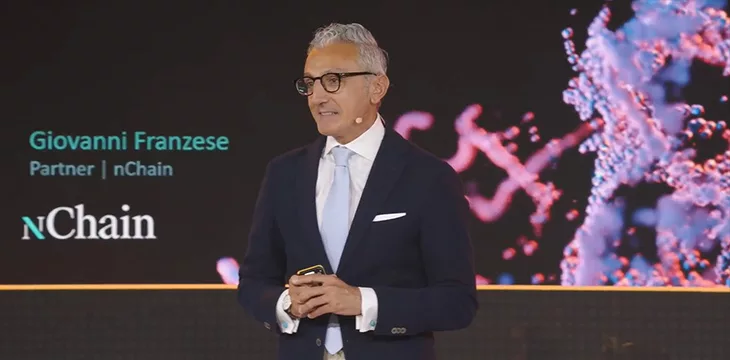Crypto skeptics have been debating online for years. Now they are organizing.

Every other Tuesday, half a dozen people hop on a Zoom call and talk about how to expose what they see as a global fraud phenomenon: cryptocurrency.
The conversation is informal and they only talk for about an hour each time, said John Reed Stark, a former government attorney who participates in the talks. The group, as well includes policy experts and technologists, has no title or official authority, but the regular conversations have become a central part of a new organizing phase in the movement known as cryptoskepticism.
“It’s kind of a ragged raft of fleeing minds coming together,” said Stark, who worked for the Securities and Exchange Commission for two decades and now teaches at Duke University’s law school.
These minds and scores of other people are organized into what has its own industry. Influential skeptics are recording several podcasts to try to poke holes in pro-crypto arguments. Think tanks are beginning to devote more resources to doubting the future of crypto. In June, they collected signatures for a letter to Congress criticizing the technology’s potential.
And next month, crypto skeptics will hold what they said would be their first-ever conference, a virtual event that will bring together people from London, New York, the San Francisco Bay Area and elsewhere. Among the scheduled speakers are Rep. Brad Sherman, D-Calif., chairman of a House subcommittee on investor protection, British MP Alex Sobel and actor Ben McKenzie, one of the most high-profile crypto-skeptics who is writing a book about crypto and scams. About 800 people have registered to participate, organizers said.
The network even has its first unofficial lobbyist: Mark Hays, a consumer advocate who may be the only person in Washington whose day job is being a full-time crypto-skeptic.
It’s a response to what crypto skeptics see as a crypto movement that has dominated discussion of this still-new technology both online and in Washington.
“Big Crypto is organized,” Stark said. “The biggest problem is that there is no organization made up of crypto-skeptics. There is a wide global network of people who occasionally talk to each other or work on projects, but we have no organization.”
The skeptics come from all walks of life, from computer programmers and Silicon Valley founders to legal experts and amateur podcasters. And all these skills come in handy.
“When you have billion-dollar funds lobbying on behalf of crypto, you have to counter that by making public the more salacious details,” said Bennett Tomlin, co-host of the Crypto Critics’ Corner podcast, whose day job used to be detect fraud in pharmacy claims. Some weeks, his show has been in the top 20 tech news podcasts, according to measurement firm Chartable.
Cryptoskepticism goes back as long as crypto has existed. And while skeptics have gained attention on social media and traditional media, especially as the value of bitcoin and other tokens has fluctuated wildly and some crypto firms have collapsed into bankruptcy, it’s only recently that they’ve started digging into the long-term to build a counterweight to crypto’s zealous and wealthy defenders.
Unless bitcoin collapses overnight, the skeptics believe, there will have to be loud voices of skepticism for some time.
“There are a lot of crypto conferences that are purely pro-crypto and don’t bother to ask the questions ‘Is this a good thing? Should we be doing this?'” said Molly White, a software engineer who has documented cases of industry misconduct on the website « Web3 works just fine.”
Cooperation between crypto-skeptics has largely been ad hoc. In March, for example, White organized a group effort to comment on a lengthy New York Times article that they considered credulous.
Stephen Diehl, a software programmer in London who is helping organize next month’s conference, said part of what’s holding skeptics back is a disagreement over how cryptocurrency will play out over time.
“There are two different schools of thought: One that says it will burn out and collapse, and others that think it needs to be actively contained,” he said.
“My job at the conference is to bring together people from both these camps and find a way forward,” he said. “I can see both perspectives. I’m a pragmatist.”
Crypto boosters so far are not impressed with the organizing effort. Cointelegraph, an industry publication that refers to crypto as “the future of money,” hailed the announcement of next month’s symposium with the headline “Haters to unite at first conference of crypto-skeptics.”
The skeptics’ project has become more pressing as officials in various world capitals weigh different options for regulating digital tokens. European Union representatives agreed on some new rules last month, and US lawmakers may follow suit within the next year. In anticipation, the crypto industry has gone on a hiring spree for lobbyists.
Diehl said crypto-skeptics are aware of the need to work across borders, given that digital currency fans consider their assets stateless.
“There is a large transnational network of people interested in advancing policy across the Western Hemisphere,” he said.
In Washington, the job of advancing the policy falls partly to Hays. He is a senior policy analyst at Americans for Financial Reform, a coalition of progressive advocacy groups founded after the 2008 financial crisis, when bitcoin was just a twinkle in the eye of computer programmers. But these days, he said, he spends almost all of his time not on crisis-era topics like mortgage-backed securities, but on crypto.
Hays said other advocacy groups in Washington are spending more time and money on research, but he said he’s used to being outnumbered.
“This is pretty typical of progressive advocacy,” he said. “As a general rule, there are fewer of us than there are on the other side. And crypto has grown so dramatically that many different advocacy organizations have been slow to recognize it.”
Hays said he thinks digital tokens “look and smell” like traditional securities and should be regulated accordingly.
On social media, where much of the debate about crypto takes place, some crypto-skeptics have decided on some tactics to try to expose what they believe are the flaws of the technology.
Liron Shapira, a 34-year-old founder of several tech startups, has found that short video clips with bitcoin boosters’ own words can be embarrassing for them. He’s gotten almost 1 million views on one video he posted on Twitter where billionaire venture capitalist Marc Andreessen attempted to explain practical uses for Web3, a vision of the Internet championed by crypto boosters in which nearly the entire web operates on the same type of distributed blockchain technology such as cryptocurrency.
























